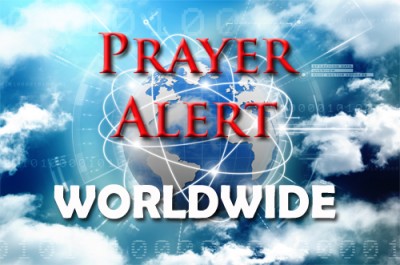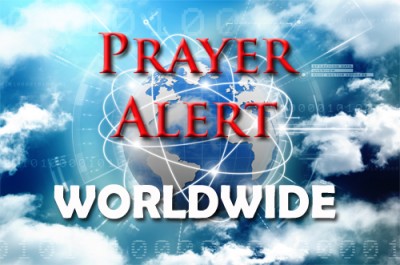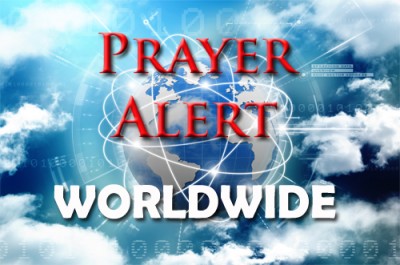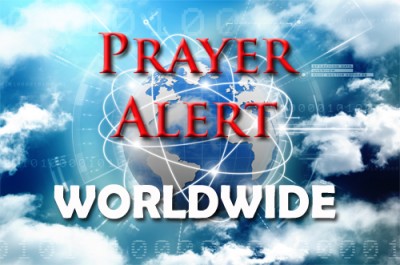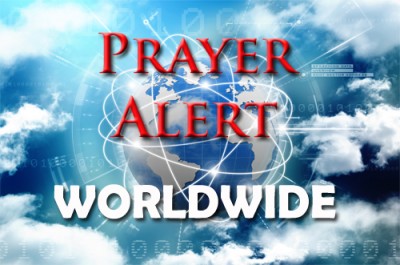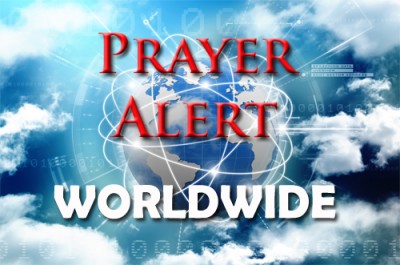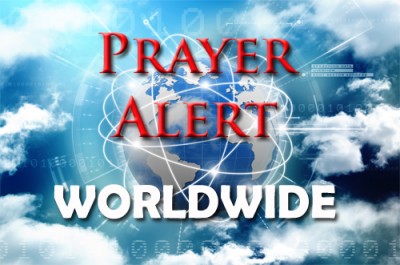Kenya: dam burst kills many
11 May 2018A dam burst in Kenya on 9 May after heavy rain, causing huge destruction and killing at least forty people. The breach happened on farmland 120 miles northwest of Nairobi. The dead are thought to include children and women trapped in mud. The Kenyan Red Cross says it has rescued some 40 people so far, and over 2,000 people have been left homeless. There are fears that the death toll could rise as the search-and-rescue operation continues. The Patel dam, one of three reservoirs owned by a large-scale farmer, broke its walls and swept away a primary school and hundreds of homes downstream, following the heavy rains that have been pounding the country. The toll now brings to 162 the number of people who have died countrywide as a result of the rains since March, according to official statistics. More than 220,000 people have had their homes destroyed.
Syria: Christian fears after takeover
11 May 2018The city of Afrin welcomed refugees fleeing Syria’s war, but in January Turkey, backed by Syrian rebels, took control there. Hanan, a Syrian Kurdish Christian, fears for those who converted from Islam to Christianity. Six years ago he started a church there, which now has 230 members. Many are from a Muslim background, becoming Christians when the grinding civil war drove them to the church searching for peace. Syrian rebels are now threatening to kill Kurds unless they convert to Islam. ‘By Allah, if you repent and come back to Allah, then know that you are our brothers,’ a soldier said in an online video. ‘But if you refuse, then we see that your heads are ripe, and that it is time for us to pluck them.’ There are serious fears of ethnic cleansing in the region.
Worldwide: ageing populations
11 May 2018Elderly healthcare is today’s challenge for tomorrow. Between 2015 and 2030 people aged 60+ will grow by 56% globally, to nearly 1.5 billion. By 2050 it is expected to be two billion. Americans aged 65+ will double to nearly 100 million by 2060. Central and South America face similar challenges. In every country in the region, the proportion of elderly will increase significantly. Similar demographic changes apply to the Caribbean where falling fertility rates compound the problem. After the 2008 financial crisis European governments reformed pension systems and retirement ages, creating a commercial care challenge. China and India’s large numbers of older people are expected to jump from 8% to 24% of the population in the next thirty years.
Nigeria: gunmen attack bishop
11 May 2018The Bishop of Makurdi, Nathan Inyom, was attacked by gunmen in Nigeria’s Benue state on 6 May. None of the five passengers (who included his wife Becky and his chaplain) was injured, but his car was stolen in the attack. Benue is an area that has been beset by increasing levels of violence in recent weeks. Last month two Catholic priests, Joseph Gor and Felix Tyolaha, were killed when herdsmen stormed the church in Ukpor where they were celebrating Mass. ‘This was an attack on everything that we ever stood for and believed in’, a spokesman said. See
More than just English lessons
11 May 2018The UN has declared South Sudan a famine nation. People receive food, humanitarian aid, and English lessons. A pastor passionately shouts slowly in English to the community attending English classes. In Juba there are 21 learning centres with 2,100 learners and 61 volunteer teachers. In Ugandan refugee camps there are 22 learning centres with 647 students and 32 volunteer teachers. They come to centres only to learn English, but through a discipleship programme some are giving their lives to Jesus. The impact of learning English is transformative, but what they read in English is the Word of God - even more transformative! Hostile groups are being transformed into peacemakers. They are learning to love God, and love each other. Only God can make this happen: this is the answer to prayer, the sword that cuts through war.
Malaysia: opposition scores historic victory
11 May 2018In Malaysia's national election on 9 May, there has been a stunning victory for the opposition led by former PM Mahathir Mohamad. Aged 92, he came out of a long retirement to take on the current PM Najib Razak and his Barisan National party, who are widely considered to have become terribly corrupted and self-serving. After some Christian leaders were kidnapped (they are still missing), and with laws threatening their religious freedom increasingly being enacted, the churches decided to join together in an all-out initiative of desperate prayer called ‘Light up Malaysia’. It looks as if their prayers are now being answered, thanks be to the Lord! Let us continue to pray with them that the results of the election will be quickly and widely accepted, and that the ruling party will accept the results and relinquish its hold on power gracefully.
Israel attacks Iranian forces in Syria
11 May 2018On 10 May, Israel said it had struck almost all of Iran's military infrastructure in Syria following an Iranian attack. After twenty rockets were fired at Israeli positions in the Golan Heights, it responded by launching what a spokesman called ‘one of the broadest aerial operations in recent years’. There was no immediate comment from Iran, whose deployment of troops to Syria to back the government in the country's civil war has alarmed Israel. Iran has repeatedly called for an end to the existence of the Jewish state.
Thy Kingdom Come Birmingham
04 May 2018One of the most powerful but simplest prayers is “Thy Kingdom Come”. God’s Kingdom brings healing, restoration, release and revelation.
The Thy Kingdom Come initiative is now in its third year and it 2018 it will be a global programme of 24/7 prayer, prayer walking, individual and group prayer and large scale celebrations.
For more info on local events and a wide range of resources go to www.thykingdomcome.global
WPC are working with partners to bring a programme to Birmingham called “Flavours of the city”. Download the programme for details.
We are excited to work with a variety of groups and churches across the city to pray for God to move.
We to encourage as many as possible to join us on the prayer walk in the city centre on Thursday 17th May from 1.00 pm to 2.30pm.
It is time for change and blessing in Birmingham and elsewhere– Thy Kingdom Come.
